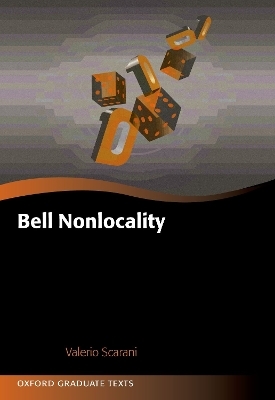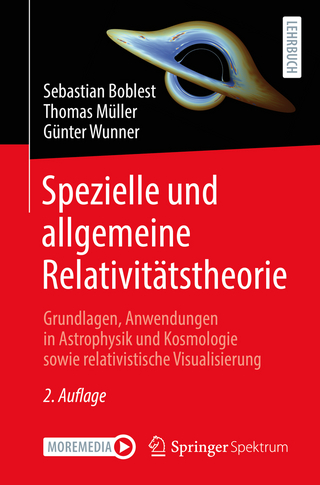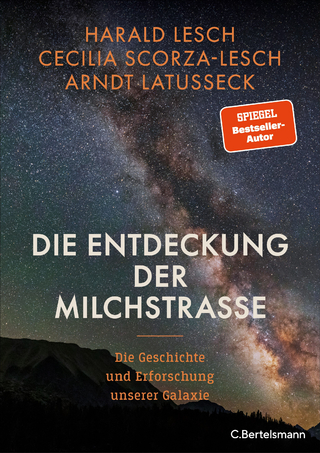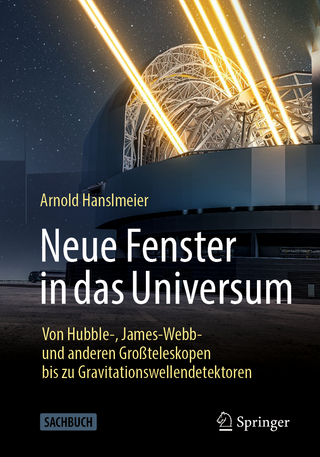
Bell Nonlocality
Oxford University Press (Verlag)
978-0-19-889682-1 (ISBN)
This is an open access title. It is made available under a Creative Commons Attribution-Non Commercial-No Derivatives 4.0 International licence. It is available to read and download as a PDF version on the Oxford Academic platform.
The development of quantum technologies has seen a tremendous upsurge in recent years, and the theory of Bell nonlocality has been key in making these technologies possible. Bell nonlocality is one of the most striking discoveries triggered by quantum theory. It states that in some situations, measurements of physical systems do not reveal pre-existing properties; rather, the property is created by the measurement itself. In 1964, John Bell demonstrated that the predictions of quantum theory are incompatible with the assumption that outcomes are predetermined. This phenomenon has been observed beyond any doubt in the last decades. It is an observation that is here to stay, even if quantum theory were to be replaced in the future. Besides having fundamental implications, nonlocality is so specific that it can be used to develop and certify reliable quantum devices.
This book is a logical, rather than historical, presentation of nonlocality and its applications. Part 1 opens with a survey of the meaning of Bell nonlocality and its interpretations, then delves into the mathematical formalisation of this phenomenon, and finally into its manifestations in quantum theory. Part 2 is devoted to the possibility of using the evidence of nonlocality for certification of devices for quantum technologies. Part 3 explores some of the extensions and consequences of nonlocality for the foundations of physics.
Valerio Scarani was born in Milan in 1972. He graduated from Ecole Polytechnique Federale de Lausanne in 1996 and received his doctorate in physics from the same institution in 2000. He then moved to the University of Geneva, where he started working on quantum information science, notably quantum cryptography and Bell nonlocality. In 2007 he joined the National University of Singapore, as a member of the Physics Department and Principal Investigator at the Centre for Quantum Technologies.
I Classical Bell Nonlocality
1: First Encounter with Bell Nonlocality
2: Formalising Bell Nonlocality
3: Bell Nonlocality in Quantum Theory
4: Review of Birpartite Bell Scenarios
5: Multipartite Bell Nonlocality
II Nonlocality as a Tool for Certification
6: The Set of Quantum Behaviours
7: Device-Independent Self-Testing
8: Certifying Randomness
III Foundational Insights from Nonlocality
9: Nonlocality in the No-Signaling Framework
10: The Quest for Device-Independent Quantum Principles
11: Signaling and Measurement Dependence
12: Epilogue
Appendix A: History Museum
Appendix B: Experimental Platforms: A Reading Guide
Appendix C: Notions of Quantum Theory Used in This Book
Appendix D: LV Models for Single Systems
Appendix E: Basic Notions of Convex Optimisation
Appendix F: Device-Independent Certification: History and Review
Appendix G: Repository of Technicalities
| Erscheinungsdatum | 27.01.2024 |
|---|---|
| Reihe/Serie | Oxford Graduate Texts |
| Zusatzinfo | 18 grayscale line drawings |
| Verlagsort | Oxford |
| Sprache | englisch |
| Maße | 170 x 247 mm |
| Gewicht | 428 g |
| Themenwelt | Naturwissenschaften ► Physik / Astronomie ► Astronomie / Astrophysik |
| Naturwissenschaften ► Physik / Astronomie ► Hochenergiephysik / Teilchenphysik | |
| Naturwissenschaften ► Physik / Astronomie ► Quantenphysik | |
| ISBN-10 | 0-19-889682-4 / 0198896824 |
| ISBN-13 | 978-0-19-889682-1 / 9780198896821 |
| Zustand | Neuware |
| Haben Sie eine Frage zum Produkt? |
aus dem Bereich


